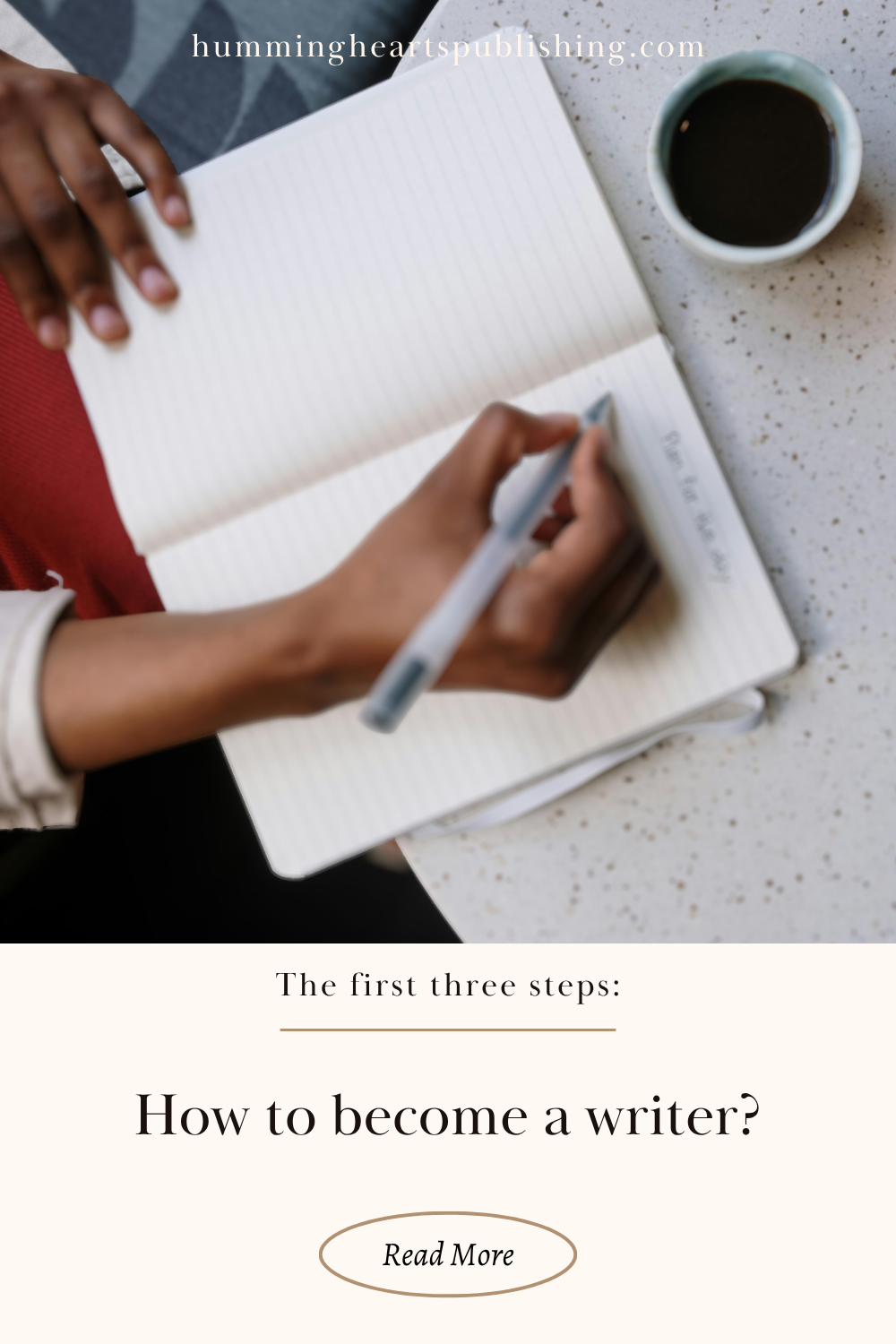How to Become a Writer
Like any craft or way of life, you have to collect the tools necessary to begin creating. Reading is the greatest tool required to be a great writer. Simply as infants, we did not walk by configuring in our tiny brains the act. We were taught. And I believe that books are our teachers; the good and the bad guide us to become great storytellers.
Reading can awaken your vocabulary, enhance the rhythmic patterns of prose, and help you assemble a completed arc for a story. Below are some vital points as to why you need to read to be a distinguished writer.
How to Become a Writer: First Three Steps
Disclaimer: This post may include affiliate links. If you purchase through my link, I will receive a small commission at no additional cost to you. See my full disclosure policy, here.
Over the years, my craft has vastly improved. Here are some of the tricks that helped me become the writer I am today. It all started first and foremost with reading a variety of books. Then, it was time to practice. Keep reading to find out some practical tools to approach how to become a writer.
Reading helps you learn dialogue, character development, world-building, grammar, etc. I've put together three important steps to follow to enhance your writing journey:
Understand the Fundamentals of Building a Story
Study Diction
Adjust and Practice, Practice, Practice
Step One: Understand the Fundamentals of Building a Story
You need to learn how to assemble a story. Structure comes into play here. Study story structure and apply that to your ideas. The truth you need to share with the world demands to be learned and expressed.
What is the most effective way to study a story? Reading.
Reading enables you to study the difference between a story that is fleshed out and others full of fluff, or that hold no real meaning. When I finish a book that didn't follow through on metaphor, character arcs, or overarching theme— I'm deeply unfulfilled. You don’t want to be that kind of writer. When you conclude a book that leaves you empty, it's because the writer didn't do their job. Most of the time, it all comes down to character development. Learn how to set up your character arcs to convey a full story. Ask: why should we care about these characters?
My recommendation is to start with The Hero’s Journey. This has helped aid my storytelling, and it could help yours as well! Check out this video from the Netflix show “Myths and Legends''— if you haven’t watched it, I highly recommend it!
After all, where do we learn stories? We learn from the myths, tales, and books that came before us!
Step Two: Study Diction
Reading helps you cultivate a winder vocabulary and teaches you how to pace a book. Before you can expect yourself to understand how to write a story, you must study the basics.
Understanding the fundamentals of writing various sentences can help you become a powerful storyteller. Books do not only consist of developing well-rounded characters and a cool plot, but weaving together to words to express your story, that makes you a professional.
While reading, I’ve cultivated a wider vocabulary and studied the pacing within sentence structure. I could not have gained these understandings without doing so.
We recommend examining these two classic writers to get a sense of writing through powerful poetic descriptions and writing with clear and direct sentences. Both authors pace and unfold a story beautifully. They simply have different styles:
The Picture of Dorian Gray by Oscar Wilde.
The Old Man and the Sea by Ernest Hemingway
Truthfully, The Picture of Dorian Gray by Oscar Wilde is a masterclass on how to write meaningful stories with rhythm and layers of meaning.
Oscar Wilde’s prose is poetic, and I often find myself in awe reading through this story at his descriptions. He paints a portrait with his words. The diction engulfs me. By reading this piece, and studying it, I’ve learned how appealing this style is to me.
On the other hand, the diction doesn’t always have to be poetic. In fact, when implemented incorrectly, people call this purple prose; you will find your style and tone through what you enjoy reading. Don’t avoid any one type of writing because of what people say, follow your creative intuition and what you love to read.
Hemingway’s style is still just as profound as Oscar Wildes’. Why? Because these writers created an atmosphere through their characters, themes, pacing, and tone.
So, study the classics. First and foremost, to see the varying types of sentences you can create as a writer. Then, read different books. Read what you love, what’s in your genre, and what’s not. The more you understand how to write sentence and wield them, the stronger storyteller you will be. This leads into the next step.
Reading has become a more fluid habit in my daily life, which has exponentially reconstructed my writing. I have completed more writing and poetry because of the mere inspiration. But more than that — reading has awakened my vocabulary, enhanced the rhythmic patterns of prose, and aided me in assembling a completed arc for a story.
This leads me to another point, be particular about what you read. There are plenty of books that do not imbue the essence of great storytelling. Yet— we can learn from those in what not to create as well.
Reading heavily influences your life and craft. Take this into consideration when choosing most of the books you ingest.
For example, had I continued on the same reading journey I was on five years ago (maybe two YA fantasy books a year). I would not have rounded out who I am as a writer, today. My writing skills would be underdeveloped because I didn’t spend enough time with the craft. I would never have learned style, tone, metaphor, etc. to tell a story with catharsis. Or at least, it would have been a longer journey to get where I wanted to be.
My reading has rapidly increased, and it has changed my creative writing tremendously. If you’re looking to study prose, aim for one book a month.
Personally, I try to read three books a month: one is solely dedicated to my book club, the other is typically a classic, and the third is for pure enjoyment! I also listen to at least one audiobook in a month. Choose what works best for you and your schedule, but I recommend reading a variety of genres.
You want to write a book, and you have stories to tell, so don’t hinder your capabilities by not learning through reading. To be a GREAT writer, educate yourself with the books that came before you to create a work of art.
Step Three: Adjust, Study, and Practice, Practice, Practice
Can I become a writer without a degree?
Let’s be honest, this is the greatest pitfall writers face when endeavoring in the craft. For generations, we’ve been told that in order to succeed, we need a piece of paper to tell us we are good enough.
You can throw that advice right out of the window. Save yourself thousands of dollars by just writing.
What makes a great mechanic? Practice.
What makes a great musician? Practice.
What makes a great writer? That’s right. Practice.
If you want to be a writer, you have to write. Putting in the time to sharpen your craft will get you the book deal, or the confidence to self-publish your novel. Do you know why? Because you will have written and refined a novel. YOU did it!
Don’t let money and societal pressures stop you from fulfilling your calling. If you want to be a great writer, you need to consistently read and write. Also, put yourself out there. Seek out writing communities and get your work critiqued; not only will this thicken your skin, but it will help you hone your craft by getting human feedback.
We are opening up a writing community Discord here at Humming Hearts Publishing. Get live feedback on your work from other writers. We’d love to have you in the community! Join the waitlist below to get information on how to access this server.
Good luck fellow writers!





